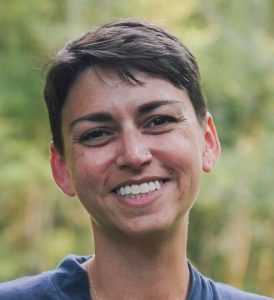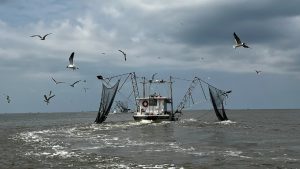

Dr. Simi Kang is a Sikh American educator, artist, and scholar. Their work centers Asian American collaborative resistance as a site for imagining environmentally just futures in Southeast Louisiana. Working alongside a non-profit that serves Vietnamese and Cambodian American commercial fisherfolk, Dr. Kang’s community engagement and writing practices reject the imperative for structurally under-served communities to be resilient to extraction, environmental racism, and the violence of the US immigration system. They hold a Ph.D. in Feminist Studies from the University of Minnesota, Twin Cities, and are an Assistant Professor in the Gender Studies Department at the University of Victoria, BC.
What Is Refugee Resilience? Reframing Survival Under Environmental Sacrifice


When refugees of war in Viet Nam were resettled in New Orleans beginning in 1975, commercial fishing was one of the few industries where people who did not speak English could make a living, establish small businesses, and build community. With this increased presence along the coast, however, came exposure to regional environmental injustices, which often impact fisherfolk sooner and with more force than inland communities. 2005’s Hurricane Katrina and the resulting levee failures made Louisiana’s ecosystem-level and infrastructural vulnerabilities visible to the world, forcing local and state actors to develop new response to the same. In most cases, these responses pivoted around racialized and economically vulnerable residents’ resilience: they survived, so they were good at survival; being good at survival meant that they didn’t require support—now or in the future. In this talk, I examine how the political imperative for racialized Louisianians to be resilient to ongoing environmental harm has specifically impacted Vietnamese American families who rely on commercial fishing. This includes thinking about disaster and responses thereto, restoration policy, and, increasingly, calls for structurally vulnerable communities to relocate away from the coast. In so doing, I argue that refugee resilience—or the community’s “innate” resilience as refugees of US and other conflicts—produces and maintains fishing families’ environmental expendability.
This event will take place in-person and on Zoom, on Tuesday 17th October from 12:00 pm – 1:45 pm Pacific.
No registration is necessary for in-person attendance, in Geography Room 229.
Please register to receive Zoom meeting details.